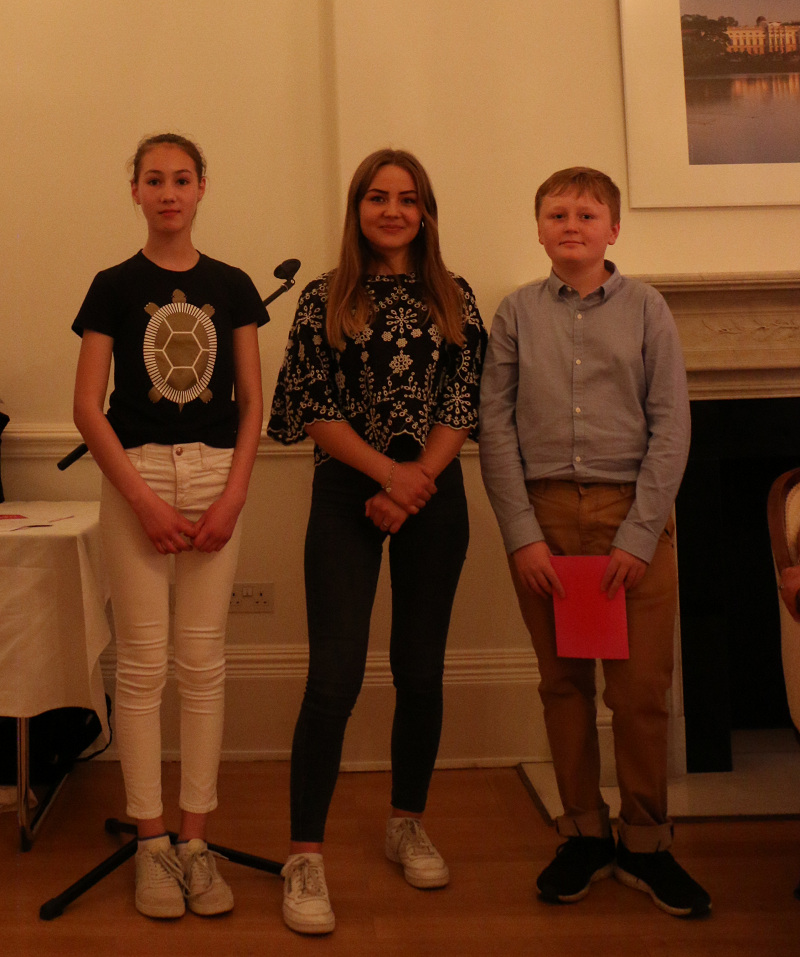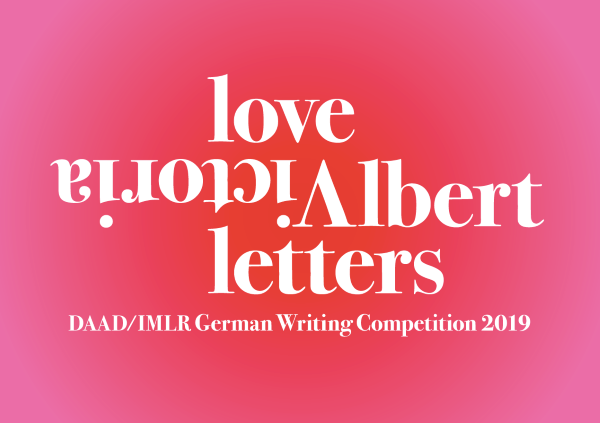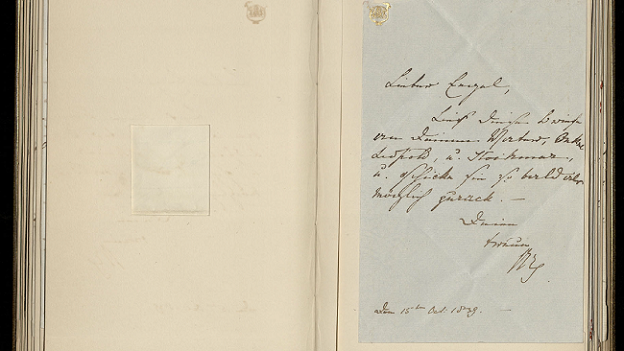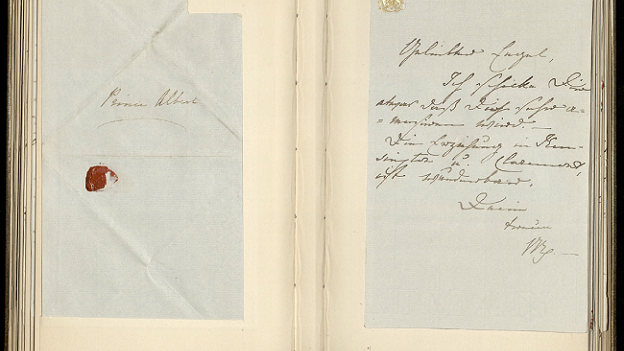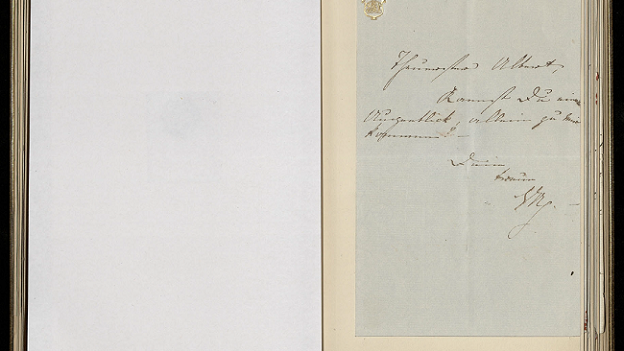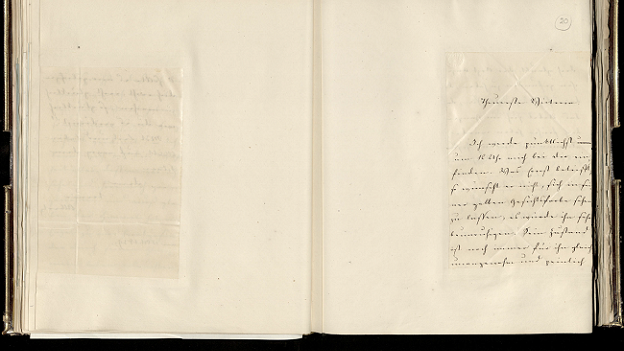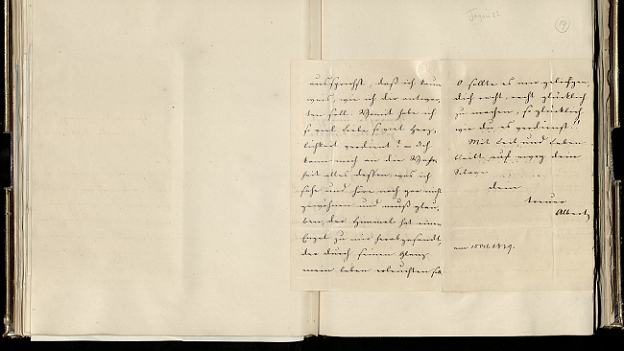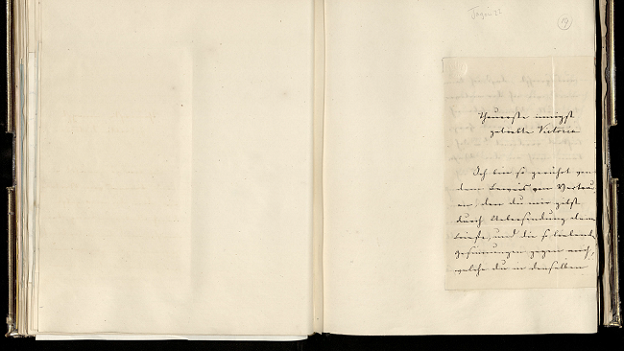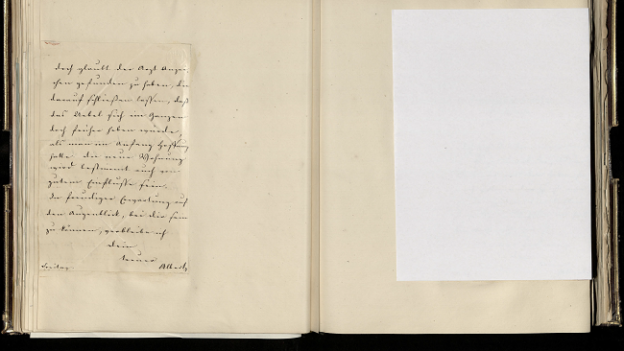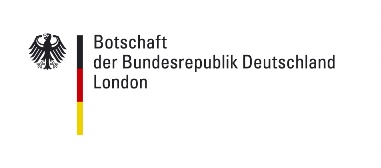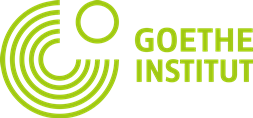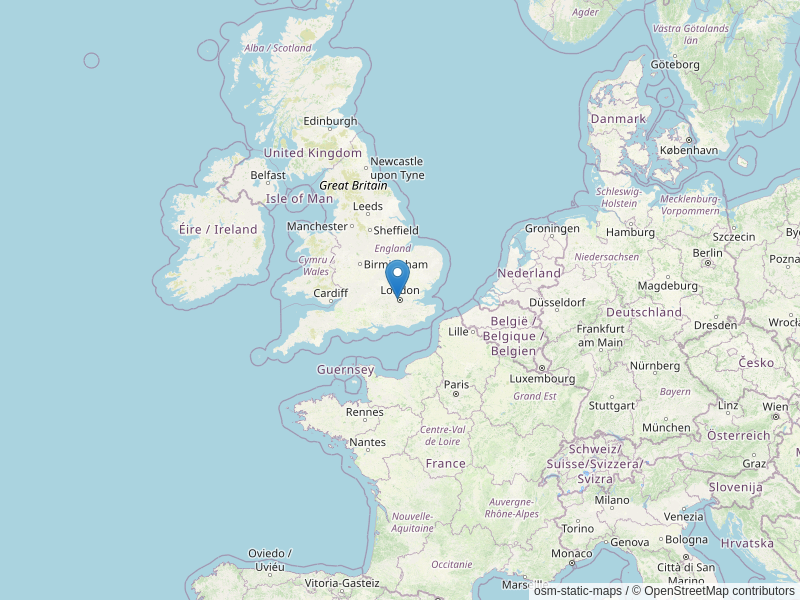German Writing Competition 2019 - Victoria & Albert: love letters
Once again this year we joined forces with the IMLR to launch a German writing competition, this time in honour of Queen Victoria and Prince Albert’s bicentenary. 75 learners and lovers of German took on the challenge and handed in their version of a love letter exchange between the royal couple in the form of a poem, an interview, a song, etc. Of the 57 entries, 22 were submitted in the ‘Mother Tongue’ category, 9 in the ‘Students and Other’ category, whilst the number of entries in the ‘Secondary School’ category was particularly high at 26.
The winners of the 6th DAAD-IMLR German writing competition were celebrated at an event on 28 June held at the German Embassy. Marking the 200th birthdays of both Queen Victoria and her husband, Prince Albert, competitors had been asked to put themselves in the shoes of Victoria or Albert (or both) and create a letter or exchange of letters between the couple, whose love affair became legendary.
Guest of honour at the prize-giving was Daisy Goodwin, historian, novelist and screenplay-writer of the ITV drama series Victoria, who talked to the IMLR’s Godela Weiss-Sussex about the challenges of bringing the story to the screen.
The competition would not have been possible without the generous support from the German Embassy, the Goethe Institute London, the Embassy of Switzerland, the Austrian Cultural Forum, the British Library and the Royal Collection Trust. Special thanks also go to our panel of judges for their time and enthusiasm.
Please find here [PDF 1.39 MB] the winning entries. Enjoy the read!
Winning Entries
Secondary School Pupils (aged 10 to 14)
1st Prize Toby Smith, Wellington School Timperley
2nd Prize Madeleine Tully, Wellington School Timperley
3rd Prize Chloe Doyle and Kate Lane, Wellington School Timperley
Secondary school Pupils (aged 15 to 17)
joint 1st Prize Clara Heider, Halcyon London International School
joint 1st Prize Elsa and Eleanor Voak, Oxford High School for Girls
2nd Prize Ester Narduzzi, International School London
3nd Prize Michael Clayton-Jolly, City of London School
Mother tongue (aged 14 to 15)
1st Prize Benedikt Decker, German School London
2nd Prize Carla Kirchhoff, German School London
3nd Prize Clara Dickinson, German School London
Mother tongue (aged 16 and older)
1st Prize Julianna Pollok and Philippine Marie-Victoire Moritz, German School London
2nd Prize Helena Rose O’Brien and Emilia Derbuch-Markovic, German School London
3nd Prize Marlene Rothenbusch and Olga Artiles, German School London
Students and Other
joint 1st Prize Lorin Bozkurt, King’s College London
joint 1st Prize Lidija Beric, University of Cambridge
3nd Prize Siobhan Williams
DAAD/IMLR German Writing Competition 2019
This year, the German Academic Exchange Service (DAAD) and the Institute of Modern Languages Research (IMLR) are joining forces for the sixth time to invite all learners and lovers of German to take part in a writing competition.
2019 marks the 200th birthdays of Queen Victoria and her husband Albert. This year’s competition is launched on Valentine’s Day to commemorate a love that blossomed across borders, cultures and languages, between the Prince of Saxe-Coburg and Gotha and the British queen. They first met in May 1836, were engaged in October 1839 and married in February 1840. During the years before Albert moved to Windsor Castle, many letters crossed the Channel – from Britain to Saxony and back from Saxony to Britain – and many, if not all of them were written in English, from the day of their engagement however until the Prince’s untimely death in 1861 they corresponded in German, the language Victoria had learnt from her mother as a little girl.
Your competition brief is to imagine one of these letters. You could either:
- Put yourself in the shoes of Victoria or Albert (or both) and write a (pair of) letter(s) or
- creatively adapt one (or an exchange) of their letters as a mini-play, lyrics for a rap song (à la Hamilton), a (set of) poem(s) or similar.
Does Albert share his thoughts with Victoria about moving to Britain and becoming a part of her life? Does Victoria tell Albert about Britain while contemplating their life together?
Be creative and think outside the box. The only two rules: your text must be written in German and not be longer than 350 words.
Letter exchange between Queen Victoria and Prince Albert:
Please find here a scan of an original letter exchange between Queen Victoria and Prince Albert housed in the Royal Archives at Windsor Castle, reproduced by permission of Her Majesty The Queen.
Prizes
- Q&A session with Daisy Goodwin, the screenplay author behind the ITV/PBS series ‘Victoria’
- tickets for the exhibition Writing: Making Your Mark at the British Library
- VIP guided tours to/ tickets for events relating to German Language culture
- book prizes/ DVD prizes
The prize-giving event will take place on 28 June 2019 in London.
- students at secondary schools/ Sixth Form Colleges
- undergraduates
- postgraduates
- German mother tongue speakers and
- anybody else who feels up to the challenge!
Submissions are welcome from single authors and from pairs of contributors and must be sent to the following email address as a PDF file: projectsdaad.org.uk
The deadline for submission is Wednesday, 15 May 2019.
How to join the competition
Step 1: Prepare your submission
Step 2: Register online here
Step 3: Send your submission as a pdf file to projectsdaad.org.uk
Stephan Ehrig is an Irish Research Council postdoctoral fellow at the Humanities Institute of Ireland, University College Dublin. He teaches and works on modernist architecture in literature and film, 18th century literature and theatre and the wider East German cultural sphere.
Paul Hoegger is co-ordinator and teacher of German at the Cambridge University Language Centre. He is an Affiliated Lecturer in the Department of German and Dutch at the University of Cambridge, and a Bye Fellow and Director of Studies of Fitzwilliam College, Cambridge. He also teaches literary seminars at the University of Cambridge Institute of Continuing Education (Madingley Hall).
René Koglbauer is Dean of Lifelong Learning and Professional Practice and Executive Director of the North Leadership Centre at Newcastle University. René is the chair of the Board of Trustees of the Association for Language Learning and has previously been its president. René is the UK representative on the International German Teacher Association and director of Network for Languages North East.
Duncan Large Duncan Large is Professor of European Literature and Translation at the University of East Anglia in Norwich and Academic Director of the British Centre for Literary Translation. He is currently Honorary Professor of Modern Languages and Translation at the University of Nottingham; till 2014 he was Professor of German and Head of the Department of Languages, Translation and Communication at Swansea University.
Joanne Leal is Professor of German Studies at Birkbeck, University of London, where she is also Head of the Department of Cultures and Languages, Assistant Dean for Learning and Teaching in Arts and an academic staff Governor. She teaches and researches in the areas of twentieth and twenty-first century literature and film and has a particular interest in literature/film and gender, the recent German novel and the films of Wim Wenders and Rainer Werner Fassbinder.
Maria Roca Lizarazu is a Leverhulme Early Career Fellow in the Department of Modern Languages, University of Birmingham where she also directs the Graduate Centre for Europe (GCfE). Her research interests include German-Jewish literature and culture, Holocaust studies, Memory Studies as well as questions of (non-) belonging in contemporary German-language migration narratives.
Silke Mentchen is one of two Senior Language Teaching Officers in the Department of German and Dutch at the University of Cambridge, as well as a Fellow of Magdalene College, Cambridge. She has established and is directing a German network for schools in the East Anglia region.
Annie Ring is Lecturer in German in the School of European Languages, Culture and Society at University College London. Her research is concerned with topics of surveillance and subjectivity in modern German and comparative culture, and she teaches modern German and comparative literature, film and thought. She is a member of the Uncertain Archives international research collective, co-investigator of the UK-based German Screen Studies Network, and co-convenor of the Picturing Austrian Cinema Symposium.
Andrea Wilcynski is Head of the School of Modern Languages at Newcastle University. She has been a longstanding member of the School’s German Section where she currently teaches Interpreting and German language to final year students. She is a Senior Fellow of the Higher Education Academy.
This competition is part of Victoria & Albert 200.
The competition is a cooperation between DAAD London, The Institute of Modern Languages Research (IMLR) and the Goethe Institut London. It is also kindly supported by the German and the Swiss Embassies London, the Austrian Cultural Forum, British Library and Royal Collection Trust.





